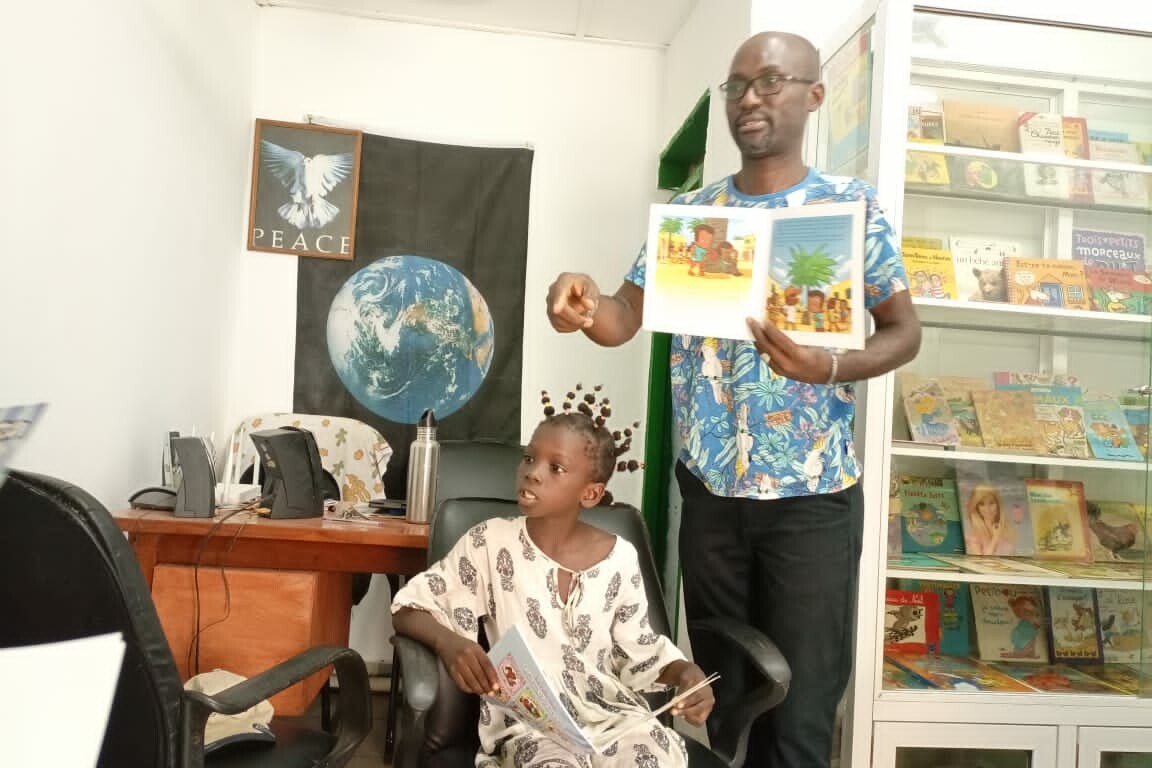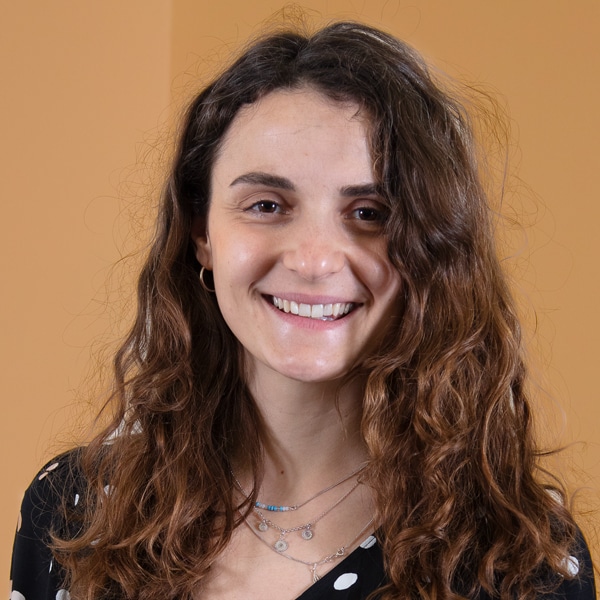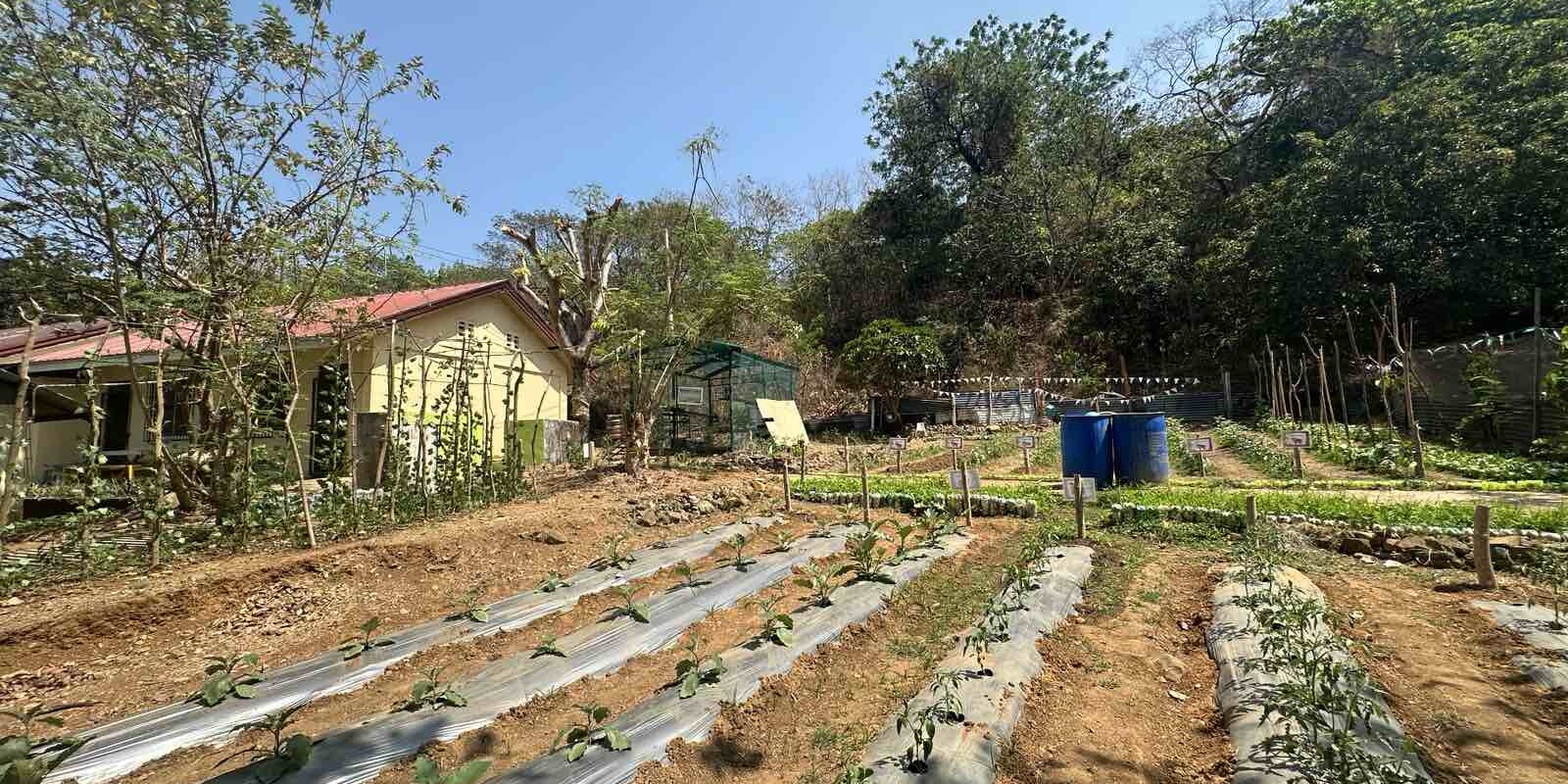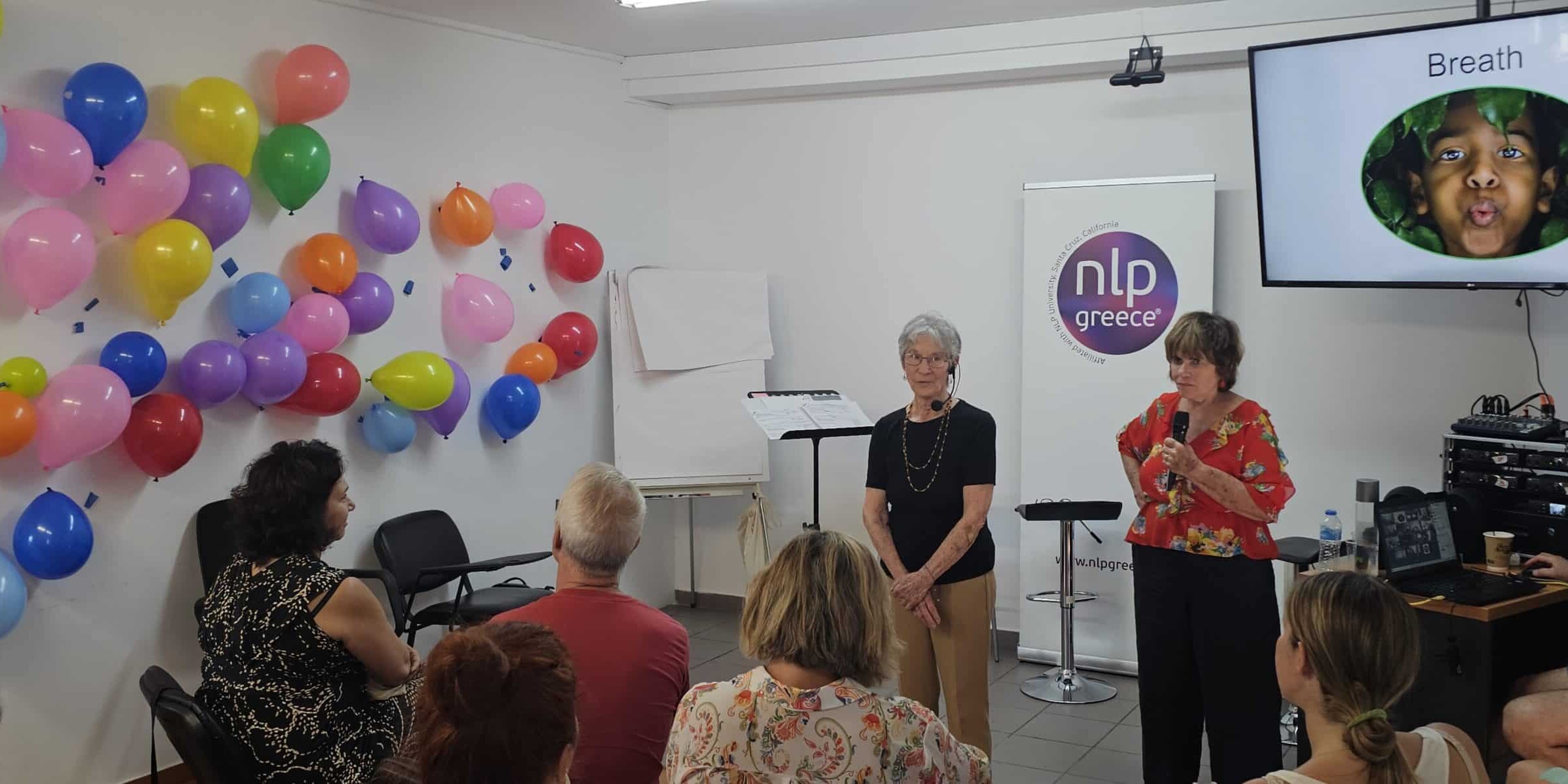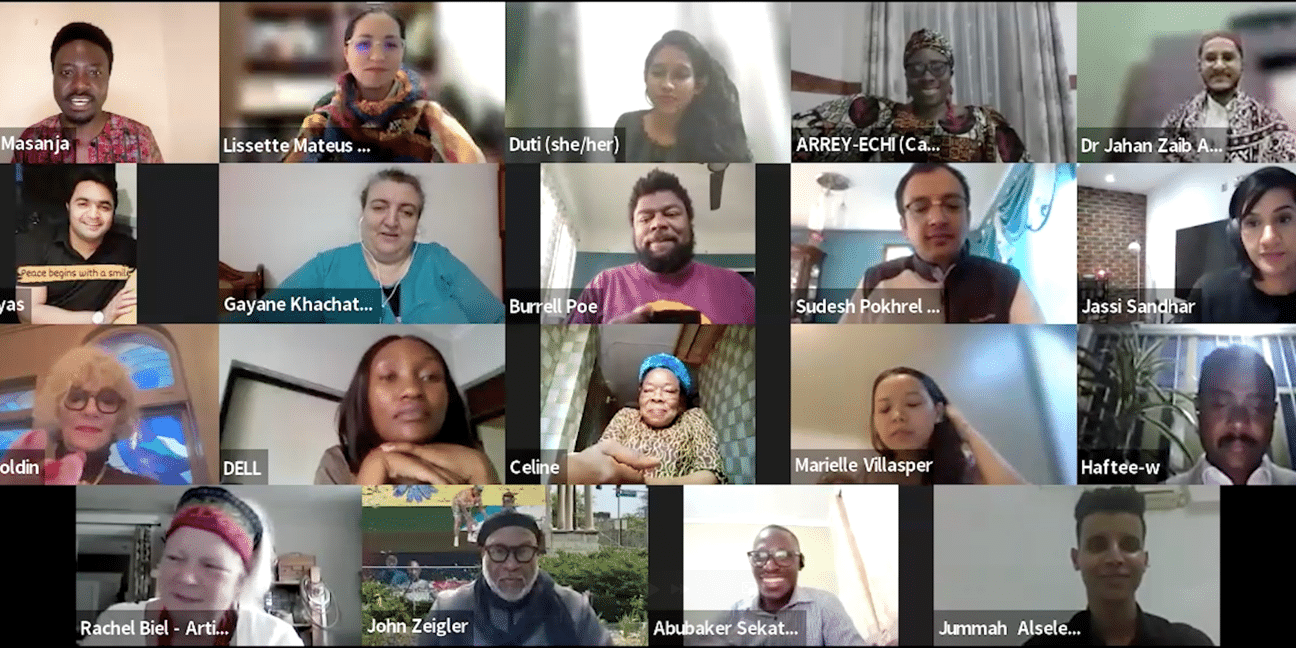One day recently, James Offuh, 2022 Goldin Global Fellow and Founder of United for Peace Against Conflicts International (UFPACI) from Côte d’Ivoire, saw kids playing with his barber tools. Realizing the hazards here, he instead offered them some books as an alternative which saw the creation of his Peace Library Project.
This seemingly random moment created a positive change for the kids in his community, highlighting how we can play our part in creating social change by leveraging the resources we already have. As a result, James, a peace advocate and educator, initiated the Children Transformative Literacy Peace Library Project and contributed to a visioning summit by launching a parenting toolkit in his community.
In this piece, he speaks more about this initiative’s impact on the children and their families, the challenges faced, and the driving inspiration behind this transformative work.
A Library Provides a Safe Space for Children
Before the creation of the peace library, which is entirely free to use, James states that children loitered on the streets, playing harmfully like throwing stones at each other, interacting with abuses like rudeness and arrogance, showing hateful sentiments, and being apathetic to one another.
“In contrast, now major outcomes are that children around my community have found a safe space for learning virtues, values that support good moral behaviors.” he says. Further, he believes – through such initiatives – children are more likely to be exposed to peace, justice, social cohesion, and accountability values “Most importantly children are developing interest in books, learning to read and always visiting the book station as a place of socialization.”
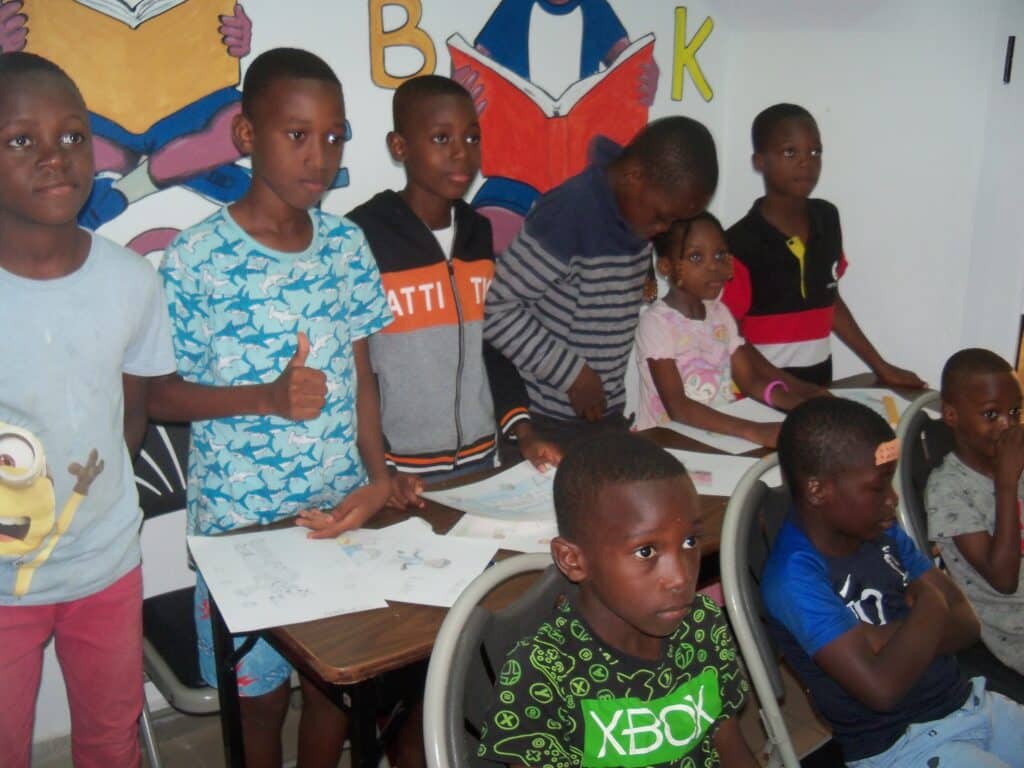
He highlights the role of the ‘Assets Based Community Development’ approach by valuing it as a critical principle to uncover gifts within our community, focusing on what’s “strong” rather than what’s “wrong”.
“When planning a community-driven social change mechanism and action frameworks, such as transforming my barbershop into a community peace library to address early child illiteracy and juvenile crimes, one should pay more attention to the gifts as opposed to deficits in society.”
— James Offuh
James remarks that many children do not have the necessary parenting guidance or resources, which often leads to children and teens getting involved in criminal activities, hard drug deals, and the consumption of marijuana.
This often meant they were sent into juvenile crimes that became alarming in the Abobo town in Abidjan City. James gives a perspective on how this alternative education space outweighs some traditional ways to solve this social problem.
“I discovered that these children, most of them grew up on the streets, had no good moral education background, applying punitive, coercive measures will not solve the problem holistically, as police keep making arrests, imprisonments, etc.“
— James Offuh
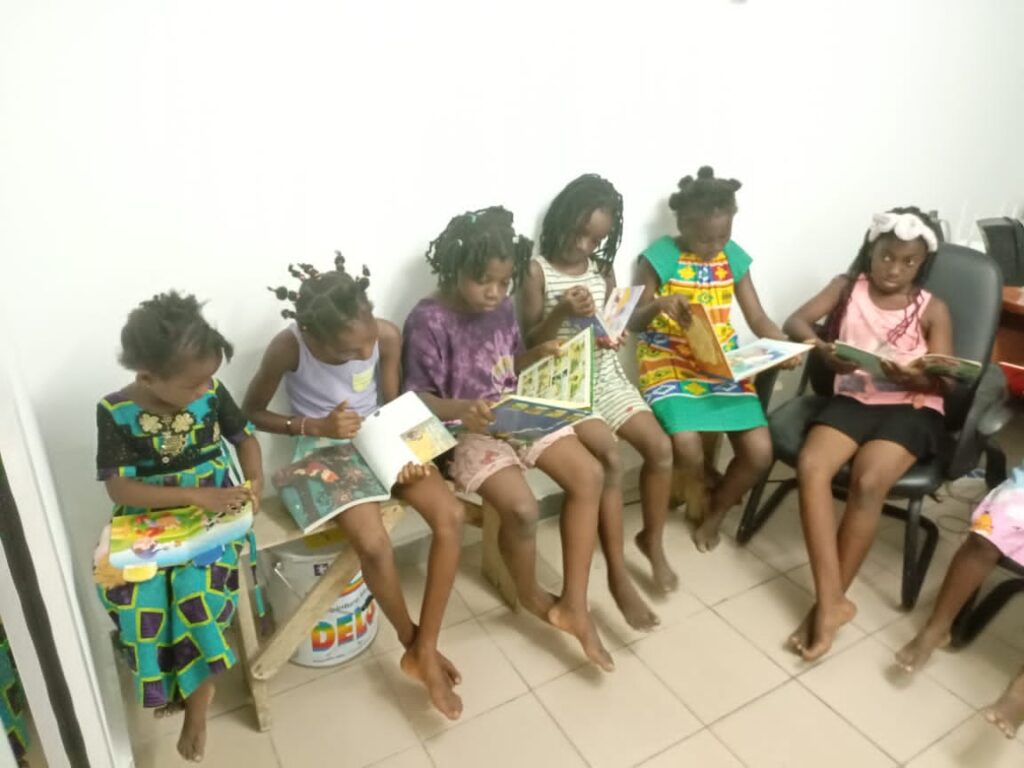
Transformational Peace through Asset Based Community Development
Further, James speaks on how, in his everyday work at the UFPACI, he implements the knowledge gained during his time as a Goldin Global Fellow: “Goldin Institute’s Gather program was an eye-opener to me; before the program, I did not know about the terms ‘ABCD’ approach and Community Driven Social Change action.” Moreover, he recalls how adaptive leadership versus technical leadership helped him understand more conflict sensitivity, analysis, and ‘do no harm’ as a tool for diagnosis over individualistic versus relational context.
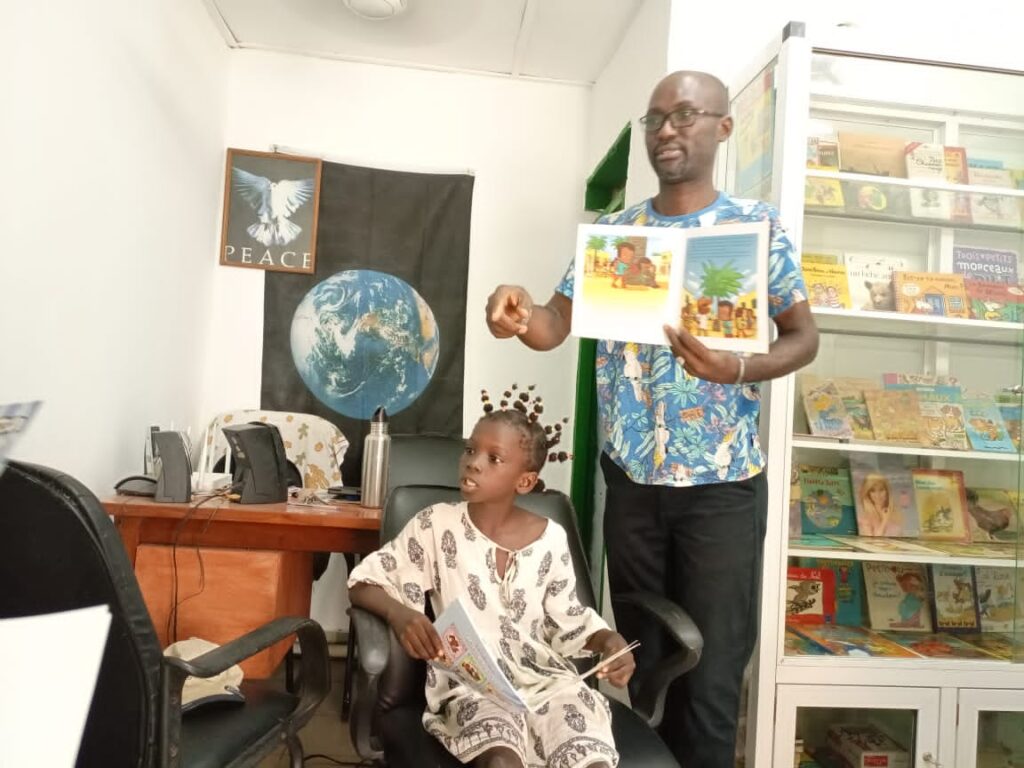
Goldin Institute expanded his global connections, too. “The Gather program expanded my networking, and I got a partner from the U.S.A. who visited me here in Cote d’Ivoire and got my details from the Goldin Institute website. He is also a member of the Gather Global Alumni network.” James also gained free online training workshops, participating recently in Project Management and Strategic Planning, which helped him learn how to design, plan, implement, monitor, and evaluate processes and outcomes.
Conclusively, James leaves us with a saying from Fredrick Douglas:
“It’s easier to build strong children than to repair broken adults.”
With his tireless work and activism at UFPACI, James and his team promote social dialogue, a non-violent culture, and peace reinforcement. Read more about their work and find ways to support them by checking their website: https://ufpacidialogue.net/. You will support the library’s longevity and sustainability so it can serve as many children for as long as possible.
Currently, the library needs infrastructural support like stable internet connectivity, electricity, comfortable reading seats and tables, workshop toolkits like drawing materials, and story books in English and French language.
